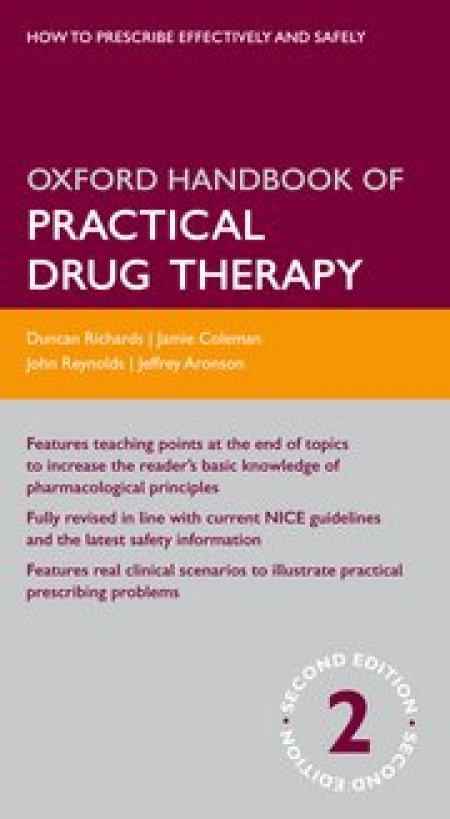Safe and effective prescribing is a cornerstone of proper patient care. There has in recent years been a significant increase in the numbers of healthcare professionals able to prescribe; however, sources of drug information tend to focus on only one area of prescribing. The Oxford Handbook of Practical Drug Therapy links practical information about how to use medicines with concise details about the pharmacology of a drug, and the principles of clinical pharmacology that govern its action. The overall structure of this handbook is similar to the UK national formulary, with topics on each drug arranged broadly by therapeutic category. When a drug has several different uses, these are brought together in a single topic, allowing the reader to appreciate its full range of actions, whether therapeutic or adverse. Each drugs topic provides information in a clearly laid out and standardised form, and includes a graphical representation of the pharmacological actions of the drug, and its potential uses, practical advice on a drug's major indications, a list of common and serious adverse effects, major drug-drug interactions, practical advice on monitoring for therapeutic and adverse effects, and what to tell the patient. Teaching points throughout the text draw out pharmacological principles, so that readers can increase their basic knowledge by linking theory with practical examples. Also included are several boxes giving guidance on the approach to therapy of specific diseases an clinical problems. In some cases, algorithms for the treatment of medical emergencies are given, and this new edition features case histories throughout the text to illustrate the issues one may face in practical prescribing. The Oxford Handbook of Practical Drug Therapy brings together for the first time in a single book really practical information on safe prescribing, with the background knowledge that underpins clinical pharmacology. Fully revised with new guidance and important safety information, this book is aimed primarily at medical students and trainees, it will also be invaluable to family doctors, clinical pharmacists, and nurse prescribers.
-
Covers everything medical students and junior doctors need to know about prescribing drugs safely and effectively
-
Pharmacological principles are expanded in teaching points at the end of topics to increase the reader's basic knowledge
-
Diagrams showing the pharmacology of the drug to promote the understanding of specific diseases and clinical problems
New to this Edition:
-
Includes additional material on practical matters such as writing a prescription and the use of placebos
-
Fully revised in line with current NICE guidelines, and new important safety information
-
Now features real clinical scenarios to illustrate practical prescribing issues

